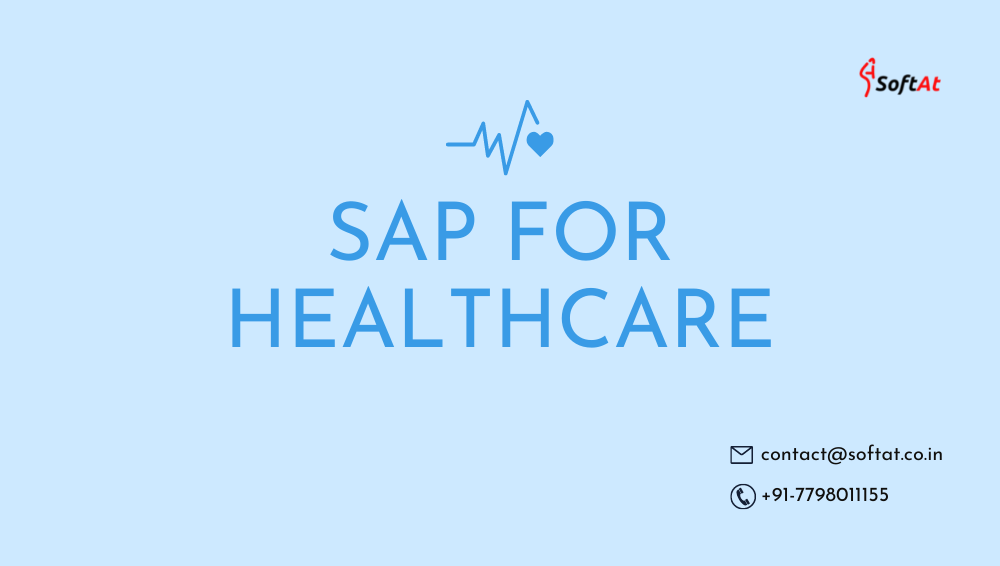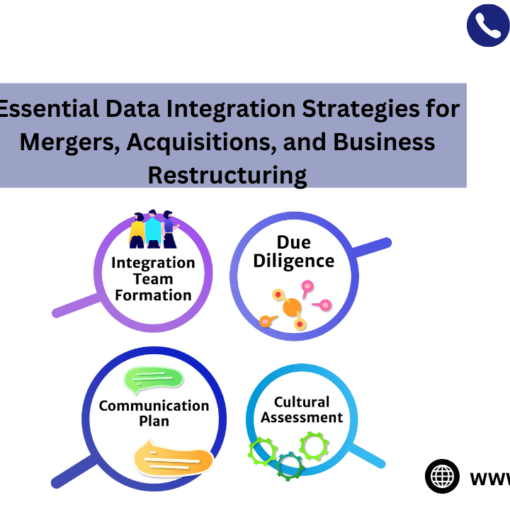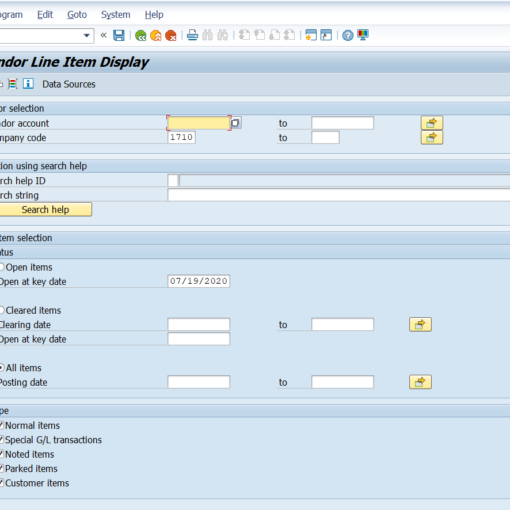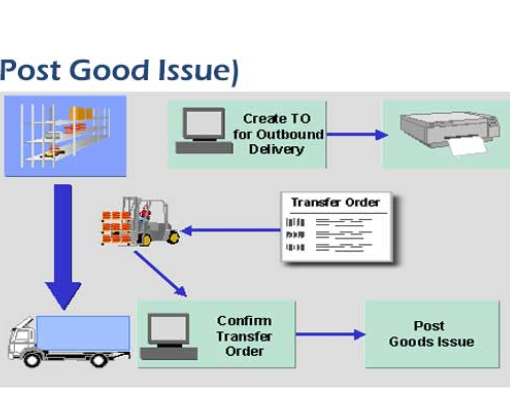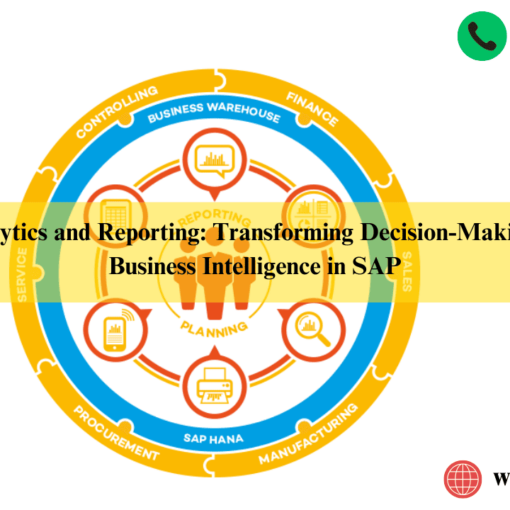SAP for Healthcare Industry
SAP for Healthcare Industry is a collection of cutting-edge software solutions geared to the healthcare industry’s unique standards, processes, and difficulties. They’re designed to work with the way you do things. And they form the industry’s best and most comprehensive set of solutions, providing healthcare businesses gain enterprise-wide visibility for better decision-making in important areas.
With a portfolio of integrated solutions, SAP for Healthcare combines clinical processes, patient service, and back-office operations together effortlessly. SAP for Healthcare, which is based on SAP NetWeaver, a comprehensive integration and application platform, helps you decrease the need for costly system interfaces, lowering the total cost of ownership.
SAP NetWeaver provides an enterprise service-oriented architecture blueprint that supports interconnectivity – trying dissimilar systems and processes together and enabling faster time to market through rapid integration capabilities – in response to the intense competition and increasing consolidation in the healthcare market.
SAP Healthcare Solutions
SAP Healthcare Solutions can help your company increase operational efficiency, reduce, risk, and control expenses while enabling new business models and patient services.
You can minimize the risk and increase the reliability of your solutions because SAP for Healthcare provides the content, tools, and methodologies you need to design, measure, analyze, improve, and control your organization. As it enables easy integration and nearly unlimited scalability, SAP for Healthcare is an investment you can’t outgrow.
SAP for Healthcare solutions enables you to give many information and communication channels to your patients, which boosts their satisfaction. For example, you can offer patients access to their treatment schedule or the chance to connect with their physician through a portal. To remind patients of forthcoming appointments or procedures they must follow before coming in for a test or treatment, you can use a short messaging service (SMS) or email.
SAP for Healthcare offers the entire range of solutions that hospitals and other healthcare providers require to compete in today’s market. The following features are available to healthcare professionals through the solutions:
Strategic service offering
This feature helps you to execute healthcare-specific analysis, manage reports & budgeting, and maximize partner relationships.
Resource and supply chain planning
The solutions assist staff management, logistics operations, and case costing, helping you to construct more efficient supply chains, cut costs, and make better strategic decisions.
Collaborative care support
This feature lays the groundwork for activities that promote integrated patient care, regardless of where treatment takes place. You can keep track of medical records and activities, coordinate diagnostic and therapeutic efforts, and plan for prevention, care, and follow-up.
Enterprise management and support
The solution portfolio enables you to perform analytics, manage financials, assist human resource management, supply corporate services, and execute operations with functions that address organizational management processes.
Patient administration and services
Simplified registration and maintenance of patient demographic and visit information, aiding patient identification and issue coordination; streamlined coordination of communication and processes inside the provider organization as well as with other healthcare providers or with patients.
Medical documentation and activities capture
More precise and efficient input of diagnoses, activities, and services performed to establish a solid foundation for all internal costs, as well as the accuracy of invoices and related revenues.
Invoicing and payment handling
Integrated contract administration, billing, communication with payers, and automatic claims handling and dunning resulted in improved accounting procedures, lower communication costs, and lower service and transaction costs.
Staff management
Intelligent shift planning and simpler access to complete employee information enable resource decisions for daily and long-term planning and budgeting, resulting in improved resource optimization and increased employee satisfaction.
Logistics support
With support and integration of replenishment processes at the care unit and central levels, process costs are reduced, transparency into requirements and consumption is increased, and warehousing and procurement costs are reduced.
SAP Healthcare analytics
When you propose care based on predictive analysis, the stakes are higher. That is why, even today, many healthcare organizations choose perspective analytics over predictive analysis. However, if businesses buy into this risk balancing and ensure that predictive analytics is used appropriately to cope with a healthcare organization’s complex processes, the returns could be considerably greater.
SAP HANA is a platform for bringing different and fragmented biological, clinical, and lifestyle datasets together, assisting people in analyzing and gaining insights from them.
Predictive analytics powered by SAP HANA combines the strength of native predictive algorithms with the depth and speed of in-memory analytics to handle massive volumes of healthcare data in real-time. The majority of data in areas like healthcare is unstructured. Whether you’re working with Enterprise systems, data warehouses, data marts, spreadsheets, or Hadoop settings, there’s a solution for you. SAP HANA’s predictive analytics solutions mix structured and unstructured data from any source.
Medical researchers and physicians can use SAP HANA to combine genomic and clinical data to look for links between genetic markers and specific disorders. Once a doctor has real-time access to this information, he can deliver individualized treatment based on the patient’s genetic markers.
SAP Patient Management for Healthcare
A consolidated SAP Patient Management solution provides the foundation for effectively managing administrative procedures, timely invoicing for hospital services, and cost control. It enables quick and effective responses to the changing needs of the health market. The patient management module is part of the open platform SAP for Healthcare, which is heavily integrated with stock management, finance, and control components. Some of the key features are:
- Management of patient-related services as the basis for controlling and reporting.
- Future-proof, flexible, adaptable billing functions.
- Personalized, role-based work environments for user groups
- Efficient business processes with integrated finance and material management (ERP system) for billing, down payments and co-payments, detailed controlling, material requirements, and documentation of material consumption
- Precise access to patient-related data, maintained under medical and clinical processes, combined with other integrated clinical applications
- Support for eHealth scenarios (IHE, enterprise services)
What is an SAP system health check?
SAP system health check is a process performed to assess and ensure the overall well-being and stability of an SAP system. It involves a series of checks, validations, and analyses to identify potential issues, performance bottlenecks, and areas that require attention or improvement. The main objectives of an SAP system health check are:
- Performance Evaluation: Checking the system’s performance and response times to ensure that it meets the required service level agreements (SLAs) and user expectations.
- Resource Utilization: Analyzing the utilization of system resources, such as CPU, memory, and disk space, to ensure they are within acceptable limits and to identify potential capacity issues.
- System Availability: Verifying the availability of key SAP services and components to ensure that the system is up and running without any critical interruptions.
- Data Integrity: Checking the consistency and integrity of data stored in the SAP system to avoid data corruption or loss.
- Security Assessment: Evaluating the system’s security settings and configurations to identify potential vulnerabilities or weaknesses.
- Background Jobs: Reviewing and monitoring background jobs to ensure they are executing correctly and not causing any performance degradation.
- Database Health: Checking the health of the underlying database system to ensure it is properly maintained and optimized.
- Logs and Traces: Analyzing system logs and traces to identify potential errors, warnings, or issues that need attention.
- SAP Notes and Patches: Verifying that the system is up-to-date with the latest SAP Notes and patches to address known issues and vulnerabilities.
- Custom Code Analysis: Evaluating custom developments and modifications to identify any potential impacts on system performance or stability.
SAP system health checks can be performed manually by experienced BASIS administrators, or they can be automated using specialized tools and solutions provided by SAP or third-party vendors. Regularly conducting system health checks is crucial for maintaining system performance, stability, and security, as it helps prevent potential issues from becoming critical problems and ensures that the SAP landscape runs smoothly and efficiently.

